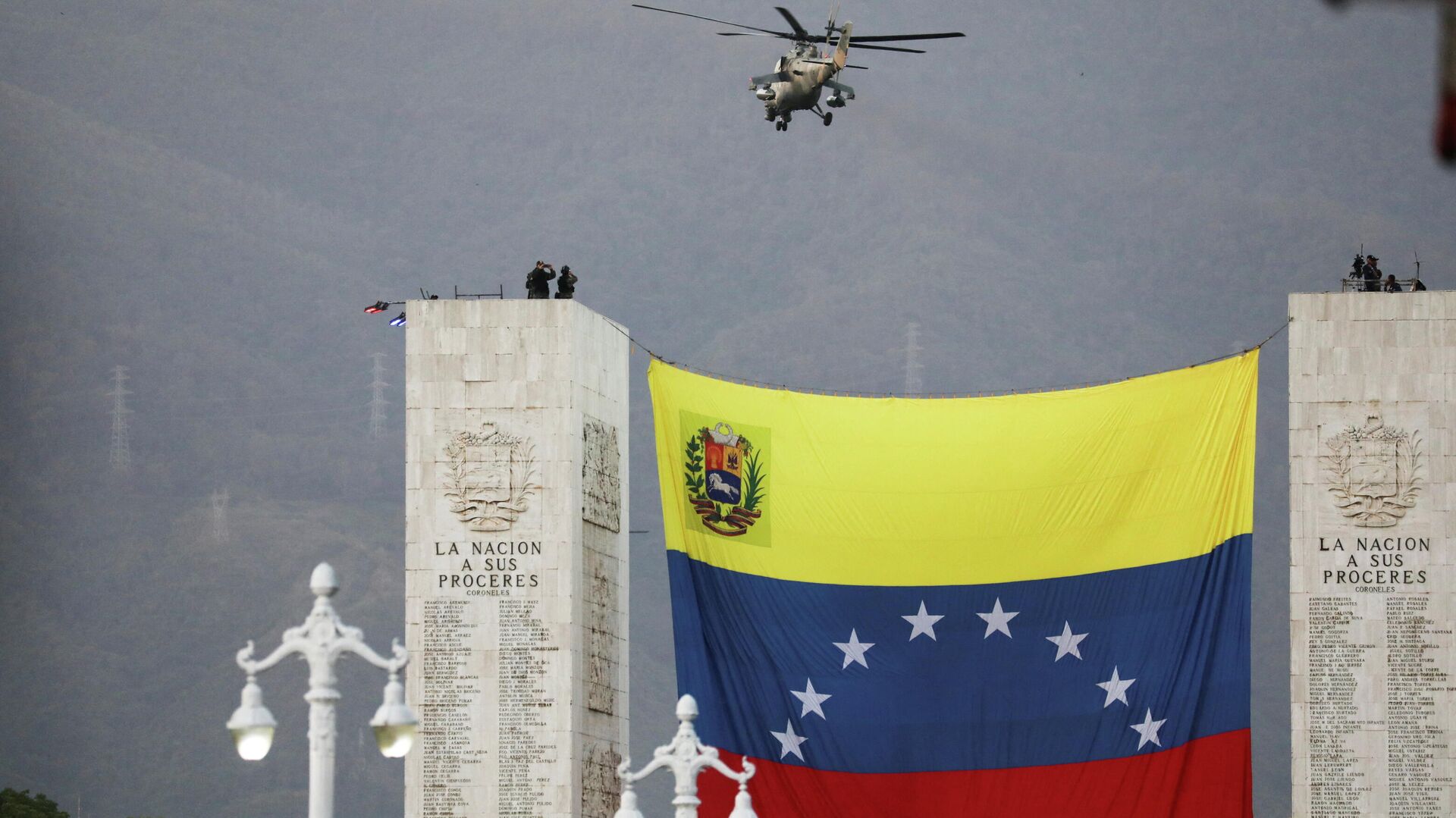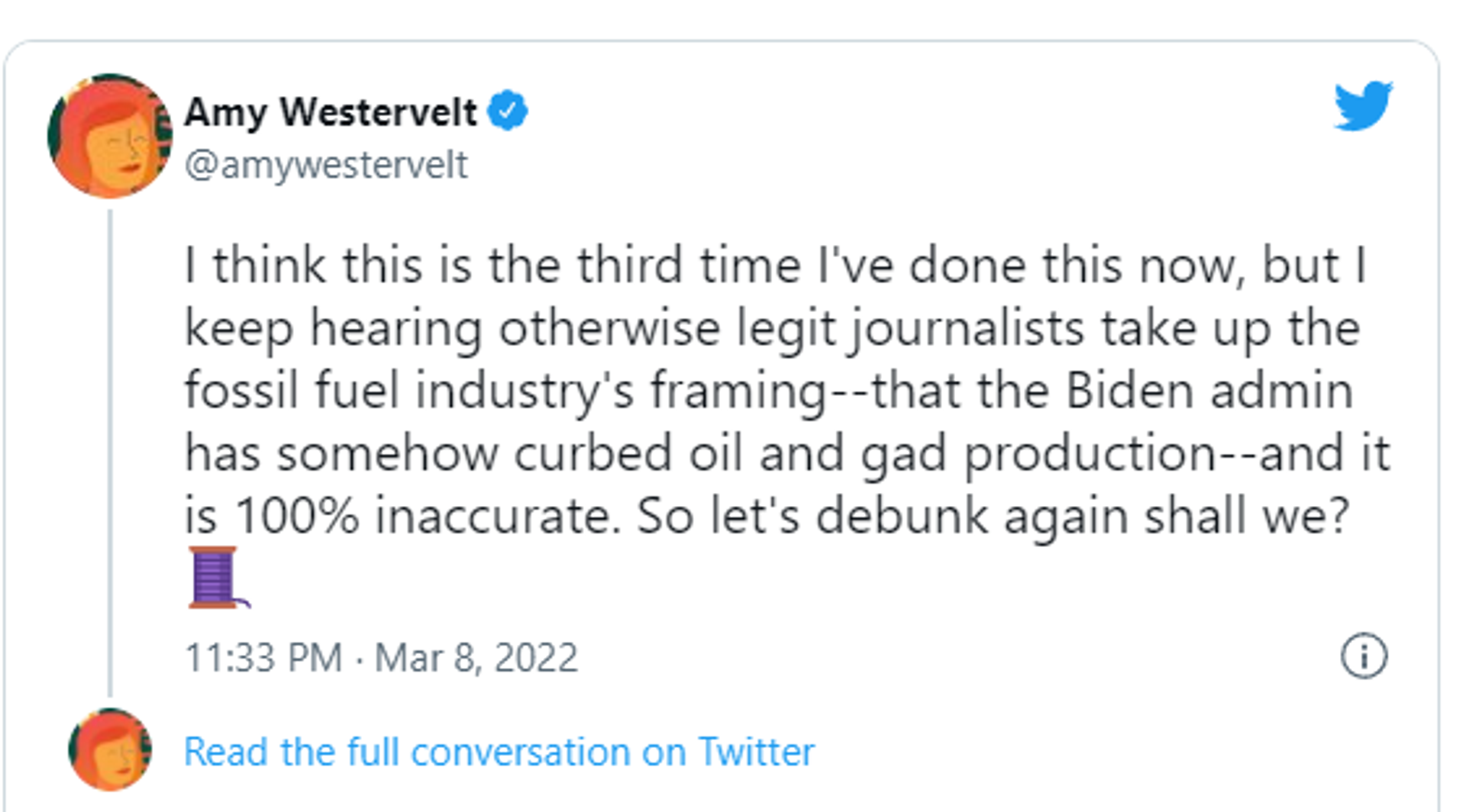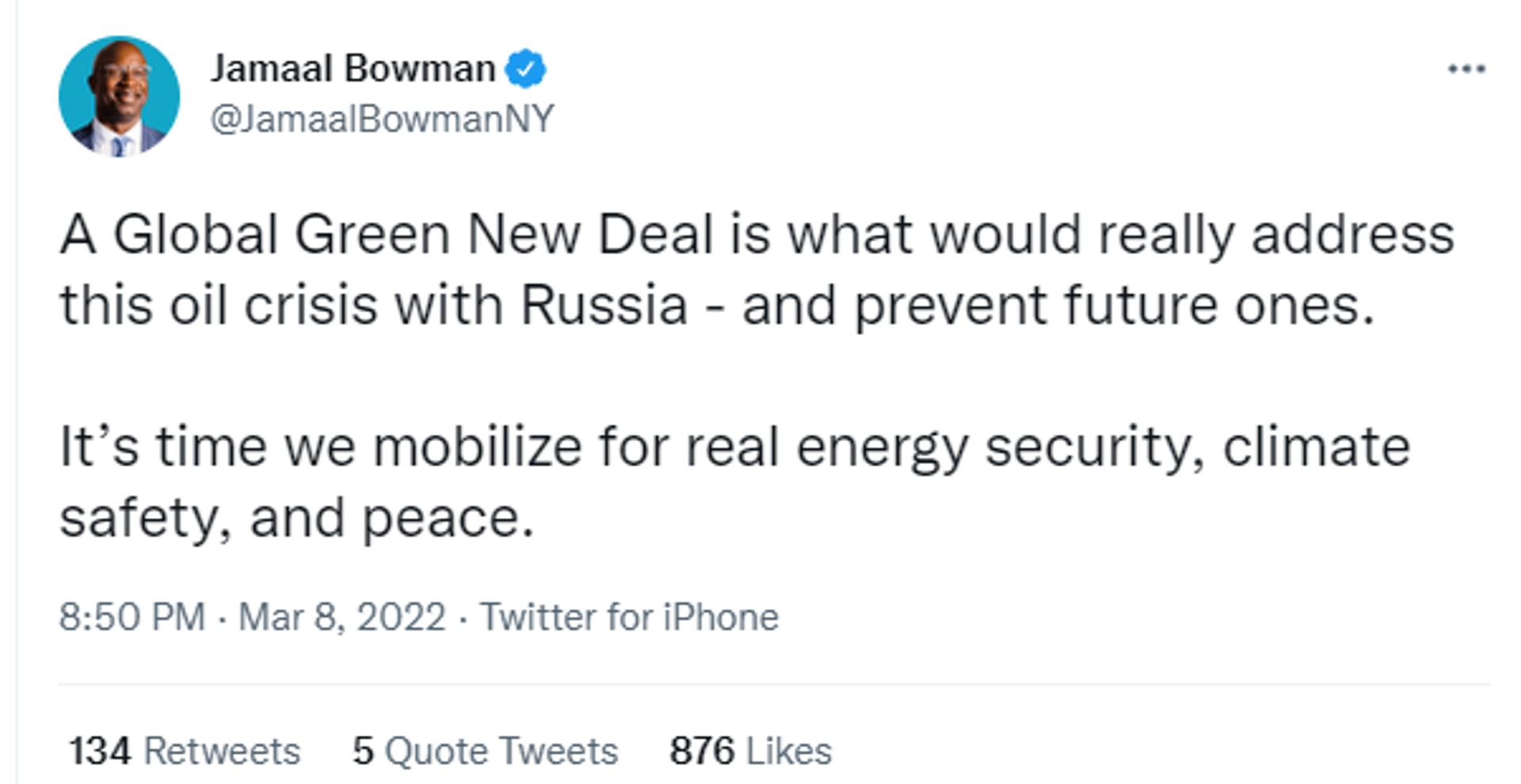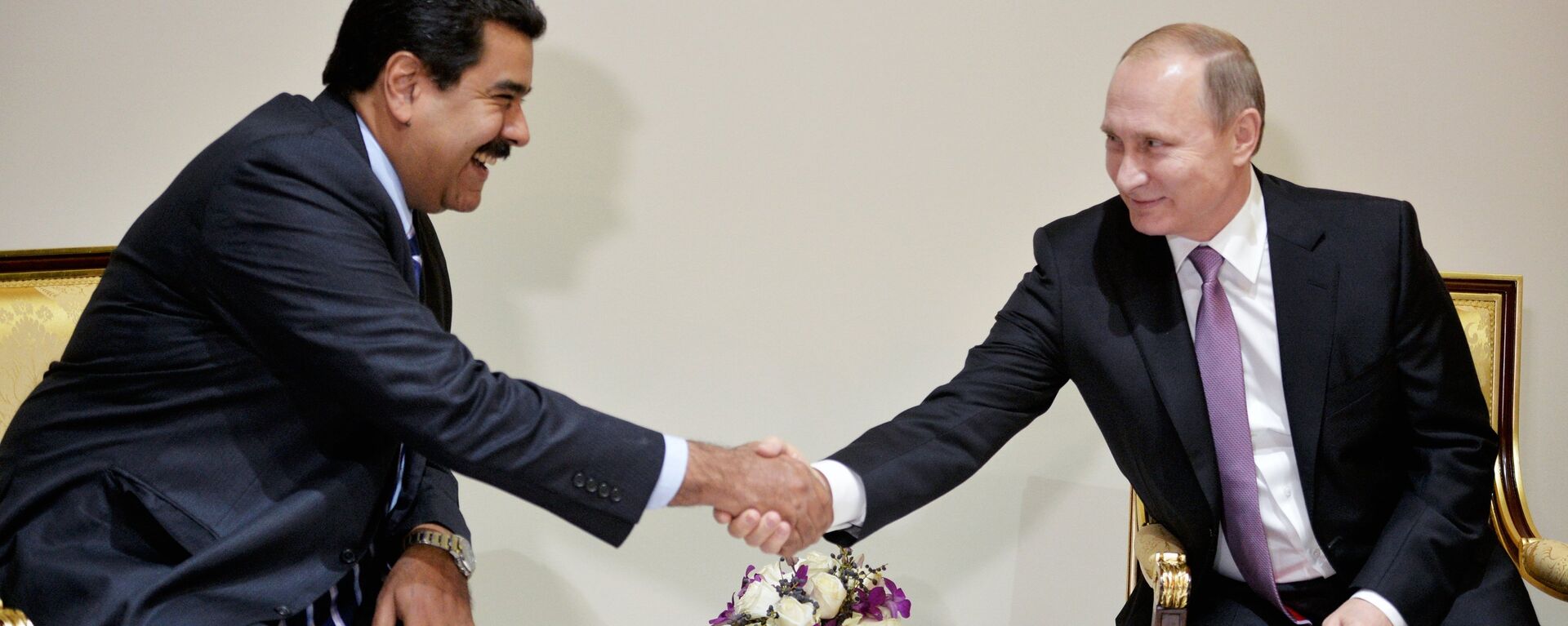Venezuela Announces ’Vigorous Reactivation’ of Dialogue As Cracks Emerge in Anti-Maduro US Consensus
01:22 GMT 09.03.2022 (Updated: 11:19 GMT 06.08.2022)

© REUTERS / MANAURE QUINTERO
Subscribe
In a major blow to the remaining legitimacy of opposition ‘puppet’ Juan Guaido, the Venezuelan government announced a resumption of diplomatic efforts with both the Venezuelan opposition and the US government, which has long backed them.
Venezuelan President Nicolas Maduro announced a ‘vigorous reactivation’ of discussions with the country’s opposition in remarks given Monday on public TV.
In an apparent sign of the early success of talks between the Maduro administration and the US, his announcement was quickly followed by news of the release of US citizens Gustavo Cardenas, one of six Exxon executives detained in Venezuela on corruption and embezzlement charges since 2017, and Jorge Alberto Fernández, a Cuban-American detained on terrorism charges.
Dialogue between the Venezuelan government and opposition factions was suspended in October following the ‘kidnapping’ of diplomat Alex Saab by Cape Verde authorities working with US officials. The announcement came on the heels of the revelation that a high-level US delegation flew to Caracas to meet with Pres. Maduro in an effort to secure access to Venezuela’s oil and weaken the country’s ties with Russia.
Describing the meeting as “respectful, cordial, very diplomatic,” Maduro explained that if Caracas wants to “ask the world for dialogue” in Ukraine, then it must lead by “example.”
The hardline faction of the opposition led by self-declared ‘interim president’ Juan Guaido appeared to be completely caught off-guard by the news that Biden had sent envoys to Venezuela for the first time since the US broke off relations following the 2019 attempted coup by Guaido. After President Maduro confirmed the talks, Senator Marco Rubio (R-FL)–described by the New York Times at the time of the attempted coup in 2019 as its “de facto spokesman”–immediately unleashed a flurry of angry missives on social media.
“The White House offered to abandon those seeking freedom from #Venezuela in exchange for an insignificant amount of oil,” he seethed in one particularly indignant post.
The Biden administration’s Venezuelan visit has exposed a rare partisan fault line in the broadly unified messaging coming from the White House, Congress, and mainstream media in regards to the Russian military operation in Ukraine. Mainstream US politicians have universally condemned Russia’s campaign of Ukrainian demilitarization and denazification, and amid an unprecedented anti-Russian propaganda blitz, the multinational corporations that subsidize them have mostly fallen in line and abandoned Russian markets and consumers.
But as Biden bans Russian oil imports and pushes Europe to do the same, just how to go about making up the seven million barrels pumped by Russia everyday has become a contentious issue–even though it’s one which OPEC chief Mohammed Barkindo has dismissed as an impossibility.
"There is no capacity in the world that could replace [Russia’s] 7 millions barrels per day," Barkindo told reporters recently.
Nonetheless, Republican politicians and right-leaning outlets have reacted with outrage to moves towards rapprochement with a government that the US and corporate media outlets have largely sought to paint as being led by anti-democratic despots since the election of socialist Hugo Chavez in 1998.
“Joe Biden using #Russia as an excuse to do the deal they always wanted to do anyway with the #MaduroRegime,” tweeted Florida Republican Senator Marco Rubio. “Rather than produce more American oil he wants to replace the oil we buy from one murderous dictator with oil from another murderous dictator.”
Republicans have mainly claimed the fuel shortages brought on by western sanctions demonstrate the necessity of loosening regulations on fossil fuel corporations in the US–a point environmental scholars have contested.

Tweet by @amywestervelt
© Photo : Twitter/ @amywestervelt
And Democrats have largely echoed Rubio’s aggressive rhetoric on the resumption of ties with Venezuela, as (with no apparent sense of irony) longtime war hawk and serial Latin America meddler Senator Bob Menendez (D-NJ) called Mr. Maduro “a cancer to our hemisphere.” But instead of urging further deregulation for energy giants, many Democrats are using workers’ pain at the pump to demand the passage of the Green New Deal.

Tweet by @JamaalBowmanNY
© Photo : Twitter/ @JamaalBowmanNY
Rubio seized on just this rhetoric to reiterate his point in remarks given Tuesday evening, blaming what he called “religious zealotry on this Green New Deal stuff” for the notion that the US can’t produce “more than enough oil to make up for whatever it is we buy from Russia.”
.@marcorubio: "We can produce more than enough oil to make up for whatever it is we buy from Russia. I just don't get it. The only explanation is this religious zealotry on this Green New Deal stuff makes that an impossibility and it's going to lead us to a ridiculous policy." pic.twitter.com/2eNU7Qf88l
— The Hill (@thehill) March 8, 2022
As Rubio himself has also pointed out, a number of alarming suggestions currently dominating western conversations surrounding Ukraine would have devastating consequences for not just Russians and Ukrainians, but the entire global community.
Because it would involve direct US-Russian hostilities, “a no-fly zone,” Rubio explained recently, “means World War III.”
Officials in Russia have similar thoughts about the potential effects of efforts to completely ban Russian fuel from the global supply.
"It is absolutely clear that a rejection of Russian oil would lead to catastrophic consequences for the global market," Russian deputy prime minister Alexander Novak said on Monday.
"The surge in prices would be unpredictable. It would be $300 per barrel if not more."
Saul Kavonic, a Credit Suisse energy industry analyst, also emphasized the difficulty of cushioning fuel supplies in such circumstances Tuesday.
“When you’ve had a prolonged period of underinvestment, you can’t just flip a switch and bring it back overnight,” he told the New York Times.
“Literally all options are going to have to be on the table in terms of sources of alternative supply,” Kavonic said. “No one source — whether that’s Saudi Arabia, Venezuela, Iran, the U.S. — is going to be able in itself to come anywhere close to replacing the totality of Russian supply if all Russian exports were to be subject to sanctions.”
But high-level Biden officials seem oblivious to both the difficulty of such a feat and the irony in rehabilitating multiple countries the US government has long smeared as human rights abusers in favor of alienating another.
Asked whether they’re considering fast-tracking Keystone XL pipeline permits or "working something out with Iran," Transportation Secretary Pete Buttigieg told MSNBC Wednesday that "all options are on the table."
Lets stay in touch no matter what! Follow our Telegram channel to get all the latest news: https://t.me/sputniknewsus

